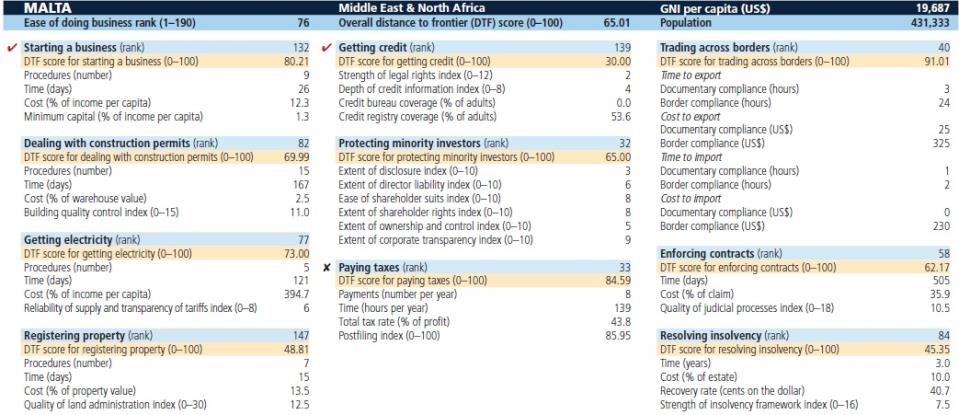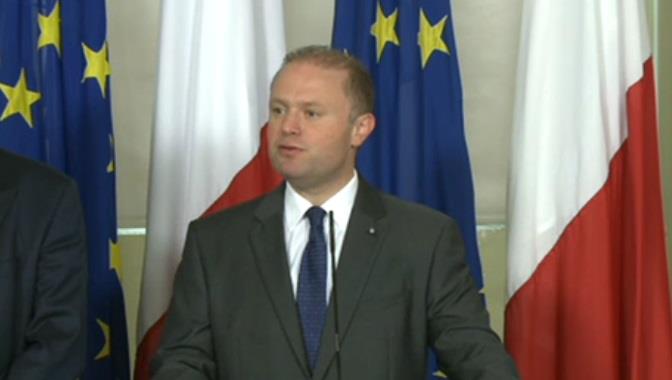Malta remains the most difficult place to do business in the whole of the European Union, according to the World Bank’s Ease of Doing Business rankings that were released on Tuesday.
On a global level Malta climbed slightly in this year’s World Bank assessment, by four spots from 80th place last year to 76th in this year’s report, but it was bettered by every single other EU member state in the widely cited and respected annual survey. The second-worst EU country in which to do business is Greece, which, in 61st place, came in a whole 15 spots higher than Malta.
The annual report, this year subtitled ‘Equal Opportunity for All’, lists out the pros and cons of doing business in 190 countries across the globe.
The main sore points about doing business in Malta, according to the World Bank’s authoritative study, remain in the areas of registering property, getting credit starting a business, resolving insolvency, dealing with construction permits and getting electricity. On the other hand Malta performed somewhat better in the areas of enforcing contracts, trading across borders, paying taxes, and protecting minority investors.
There has been some marked progress, however, with Malta having climbed from its previous global 102nd spot when it debuted in the index back in 2012, to today’s 76th placing, but it still remains in the EU’s bottom spot.

Over the last year, Malta has also made some progress this year toward correcting the ease of doing business deficit. As the World Bank report notes, the country made some improvements in the areas of starting a business and of getting credit. As far as the former is concerned, the World Bank notes that Malta this year made starting a business easier by offering automatic registration with the Inland Revenue Department following the receipt of the company registration number. And as for the latter, the World Bank notes that Malta improved access to credit information by launching a new credit registry.
One major sore point for businesses, as pointed out by the World Bank, was that, “Malta made paying taxes more costly by replacing the capital gains tax with a property transfer tax, and increasing the maximum social security contribution paid by employers.”
Last June all government departments signed an agreement pledging to make it easier for investors to start a business in Malta.
At the time Dr Muscat said, “I was shocked when I saw Malta’s ranking in the Ease of Doing Business Index and knew that I had to address the issue immediately.”

The commitment signed by representatives of government departments and entities represents a collection of deadlines and methods with the final aim of reducing bureaucracy and increasing accountability.
Overall, New Zealand, Singapore, Denmark, Hong Kong and South Korea led this year’s rankings.
Between June 2015 and June 2016, the report, which measures 190 economies worldwide, documented 283 business reforms. Reforms reducing the complexity and cost of regulatory processes in the area of starting a business were the most common in 2015/16, as in the previous year. The next most common reforms were in the areas of paying taxes, getting credit and trading across borders.
Brunei Darussalam, Kazakhstan, Kenya, Belarus, Indonesia, Serbia, Georgia, Pakistan, the United Arab Emirates, and Bahrain were the most improved economies in 2015/16 in areas tracked. Together, these 10 top improvers implemented 48 regulatory reforms making it easier to do business.